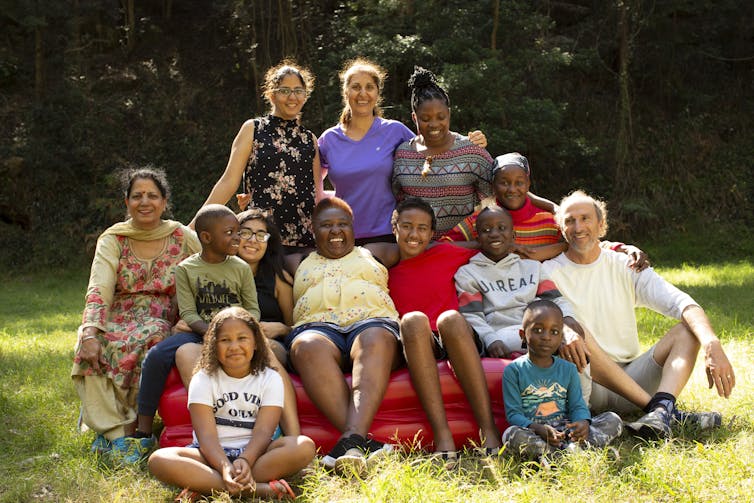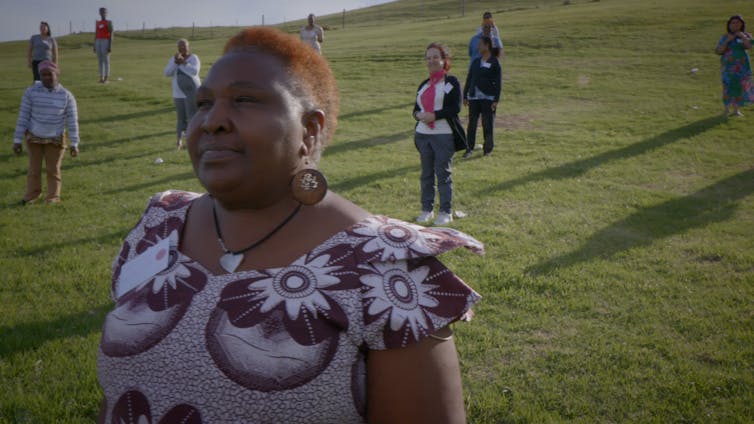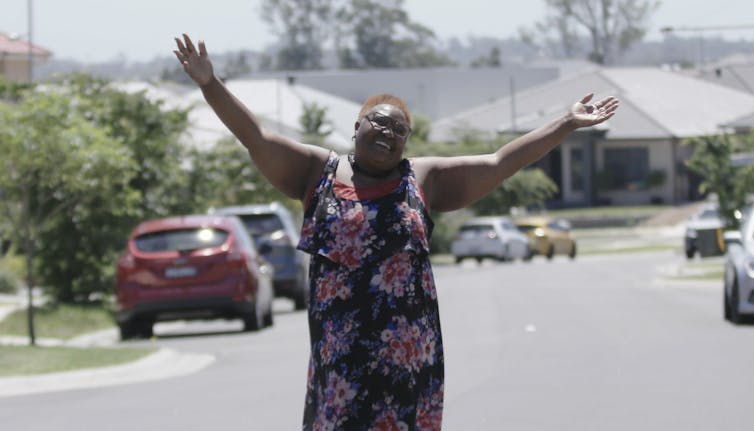Source: The Conversation (Au and NZ) – By Kathomi Gatwiri, Senior lecturer, Southern Cross University
Film review: Rosemary’s Way, directed by Ros Horin.
I love finding myself new heroes. Rosemary Kariuki is an extraordinary change-maker and leader I have recently added to my list. As the 2021 recipient of the Australian of the Year Local Hero award she has been recognised for her strong advocacy and community building among migrant and refugee women in suburban Sydney.
A new film, Rosemary’s Way, celebrates her work as a charismatic community worker who has transformed the lives of thousands of women dealing with disconnection, domestic violence and trauma.
The film starts at Rosemary’s house, and in a “typical” African fashion, there is singing, dancing and food. Rosemary uses these familiar cultural symbols to build friendships and trust within members of the migrant communities she works with.
From isolation to connection
Rosemary arrived in Australia in 1999, after escaping tribal clashes in Kenya following a disputed election. The challenges she experienced as a new migrant were a springboard towards her passion to support others who arrived after her.Rosemary’s various community programs are aimed to reduce the sense of loneliness and isolation which have been cited as some of the biggest factors affecting people from migrant and refugee backgrounds in Australia.
Rosemary’s programs bring together migrants and refugees from European, Middle Eastern, South American, African and Asian backgrounds. “She’s the mum of everybody!” laughs one woman in the film. Rosemary affirms she is “a great believer in different cultures coming together,” to share what’s common among them rather than what is different.
One program she organises is the cultural exchange program. In the film we see Rosemary lead a group of migrant and refugee women to country towns in New South Wales where they are hosted by welcoming “local Aussies”. It’s an opportunity to “get out of the house”.
One woman reflects on her experience with the host family as being the “most generous anyone had been to her since she arrived in Australia”. Another says she “felt like a celebrity” when the host family brought her “tea on the veranda everyday, because they knew I was a bit depressed”.
Such small acts of kindness are experienced as symbols of acceptance. These moments of connection help build relationships that humanise migrants and refugees and foster strong bonds, promoting a sense of well-being and belonging.

From marginalisation to community
My previous research shows community is not necessarily based on close familial ties, but in the value of collectivising and “walking together” to develop resilience to external stressors. Finding a group of people who share common or similar value systems, interests and experiences provides a social cushion that helps reduce the sense of isolation.
For refugees and migrants in Australia, finding communities of interest, attachment and purpose, where a sense of “feeling at home” is inculcated and strengthened, can provide the foundation for a successful new life.
Rosemary’s work as a multicultural liaison officer connects migrants and refugees with resources and each other, and in doing so, employs culturally affirming ways of “being and doing” to solve social problems. Many who engage with Rosemary’s programs report it to be an empowering process that gives them confidence to help others.
Gradually, as connections solidify, the community designs its own solutions to pressing social issues (such as domestic violence and loneliness) and psychological issues (such a depression and anxiety).
Read more: Battlegrounds: highly skilled Black African professionals on racial microaggressions at work
From trauma to healing
Many of the women Rosemary works with have complex life stories layered with unbearable trauma, grief and loss. Rosemary uses cultural symbols of eating together, dancing together, and being together, to build safe connections for these women.
The film includes moving moments as women share the “healing moments” they’ve experienced through Rosemary’s work. They reflect on the gift of being seen, heard and understood. For some, the experience of being cared for has empowered them to leave abusive relationships, enrol to study, and reengage socially with community in a healthy way.
All these individual “wins” are good for families, communities and for Australia. Rosemary’s community impact reminded me of an African proverb I grew up hearing a lot: if you want to go fast, go alone; but if you want to go far, go together.

Towards ‘Ubuntu’
Rosemary’s work strongly aligns with the African collectivist ways of “doing” community work, which focus on principles of Ubuntu. This is an African philosophy centred on the premise: “I am because we are; and since we are, therefore I am”. The essence of being human is made possible through the process of humanising others.
Captured in Rosemary’s Way is the willingness to see, feel and enter the depth of other people’s experiences with deep care. This form of human-centred community practice produces interconnectedness and change. “In the end, I want us to all feel like human beings,” Rosemary says.

Read more: Growing Up African in Australia: racism, resilience and the right to belong
Lessons from Rosemary’s Way
Although there are harmful narratives about migrants and refugees in Australia, which are frequently deficit-focused and connected to negative racial stereotypes, Rosemary does not see migrants as problems that need “to be fixed.”
Instead she shows us real examples of how “strength-based approaches” underpinned by sharing food, dance, laughter and connection — regardless of our backgrounds — can offer a powerful way of fostering belonging among these communities.
I recommend screening this film at your work, church, school, book club, local cinema or wherever you connect with community. Reflect on the goodness, light, laughter and joy (and maybe some tears) Rosemary will beam into you … and then share that soft moment with someone else.
Rosemary’s Way is screening nationally.
– ref. ‘She beams goodness and light’: Rosemary’s Way is about a hero transforming the lives of migrant and refugee women – https://theconversation.com/she-beams-goodness-and-light-rosemarys-way-is-about-a-hero-transforming-the-lives-of-migrant-and-refugee-women-159124




